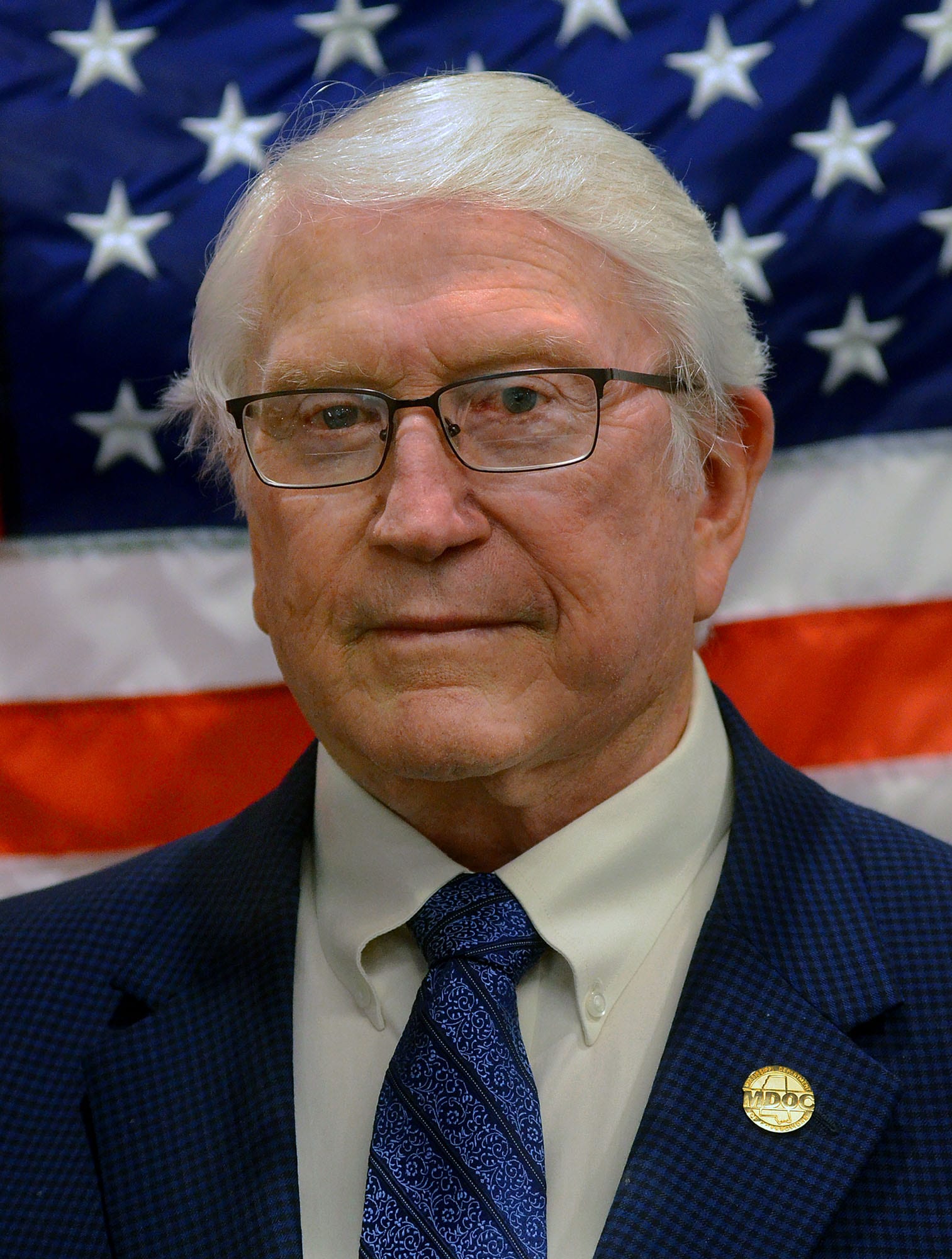
MDOC Commissioner Burl Cain
Burl Cain was recently appointed Commissioner of the Mississippi Department of Corrections. He brings with him a 40-year career with the Louisiana Department of Corrections where he served as Warden of the Louisiana State Penitentiary for 20 years.
However, Cain did not get his initial start in corrections. He originally had his sights set on teaching agriculture, but that didn’t seem to fit.
“I went to the classroom and lasted three months,” said Cain. He said often times when he speaks to groups, he will ask who is a schoolteacher. He tells them that their jobs are harder than being the warden of a prison.
Cain came to work in the prison industry after serving for five years as the Assistant Secretary of agribusiness with the Louisiana Department of Public Safety and Corrections. He was appointed to that position by LA Governor Edwin Edwards. In 1981 he was made warden of Dixon Correctional Institute.
“I didn’t have any tradition in me, so I was wide open to new ideas,” said Cain. “Prisons are very traditional…so the unique thing was we asked, ‘why do you do that?’ Asking why brought some change.”
While the classroom wasn’t the place for Cain, he credits what he learned from his schooling to become a teacher, to be a good warden. He said prisoners will often revert back to the mentality held in high school, because that’s what they can relate the prison environment to. He said the prison system in Louisiana often had better school outcomes than the public system due to discipline.
When it comes to reform, Cain said his focus has always been “moral rehabilitation,” a term he coined early in his career.
One way they attempted to accomplish that was through a partnership with the New Orleans Baptist Theological Seminary. The school was started in Louisiana but branched to Mississippi under the Governorship of Haley Barbour. Cain said that seminary was a big reason why he was drawn to apply for this position.
These programs within the prisons are privately funded due to the separation of church and state. Cain said Mississippi protestant groups have given over $50,000 yearly to have them function and are finally seeing the graduates practice what they’ve learned. The implementation of the program is based on research done by Baylor University.
“Today [Monday], the first inmate pastor will be preaching in a prison in North Mississippi to a group of ten because of COVID,” said Cain. “They change each other better than we can from the outside because they’re there with them.”
Cain said it was the programs that changed Angola, not whether or not he was a great warden.
With all the good that came from the reform at Angola, Cain is still no stranger to controversy. Prior to his resignation in 2016 he was accused of selling interest in land that he had owned in West Feliciana Parish, to developers who were tied to two Angola inmates. He was also accused of using inmates to perform home renovations without the proper payment of food and lodging costs.
An investigation was conducted on the matter by the state legislative auditor and Department of Public Safety and Corrections. Cain was exonerated of any allegations in May of that year.
When asked to comment on the investigation that was conducted Cain referred to the background of his cell phone, which is a screenshot of a news article entitled: “Cain cleared of wrongdoing tells all.”
Cain asserted that this was a political move to get rid of him and that he was cleared of any wrongdoing. He said that to him it’s really a moot point.
“I almost ran for governor and I’m a Republican. The governor that won is a Democrat, so I’m gone. You can kind of see the politics in it,” said Cain.
When it comes to making change in Mississippi’s prisons Cain said he plans to set an example for all MDOC employees.
“You have really fine people here. We just need to change our direction and focus on more rehabilitation,” said Cain.
Cain believes there are some components that allow for an inmate to do their time and do it peacefully. They include: good food, good medicine, good praying and good playing. He said with those components its realistic to have a successful prison system.
When the COVID-19 pandemic hit the Governor was forced to halt the transfer of inmates from Unit 29 at Parchman to other facilities. Cain said he couldn’t comment on when and if they would resume those transfers at this time because he hasn’t been able to visit the prisons and see the conditions for himself. He said he hopes to begin visits as soon as this Thursday.
“I have to go to all the prisons. I have to be there with them, eat their lunch with them and so forth,” said Cain. “I’ll surprise them actually, I’m prone to go on Saturday’s and Sundays cause sometimes the food isn’t as good on the weekend.”
Moving into the next budget year, Cain said he believes ensuring that corrections is taken care of is a major priority for the administration as well as legislators. One thing is office began doing today is making sure people who want and are qualified to get a job as a corrections officer don’t have to wait weeks to start.
He said as it stands there has been such a lag in people obtaining employment that those individuals often find another job before they can start work in a prison. He said they will now be streamlining that process so that people can begin within a matter of days.
The current salary base for a corrections officer is $27,000.
“I hope in the next week or two weeks when you come to us wanting a job, we will be able to have you on the payroll the next day,” said Cain. This was something he also implemented as warden at Angola.
Cain said he plans to get the Mississippi prison system “rocking and rolling” as soon as possible. He added that he feels honored to be selected for the position and have a chance to make a difference.












